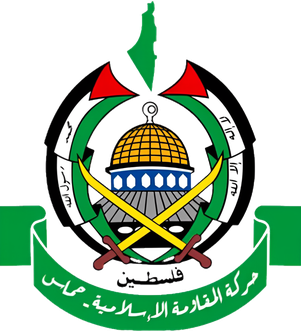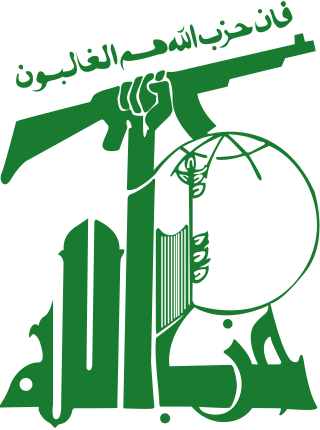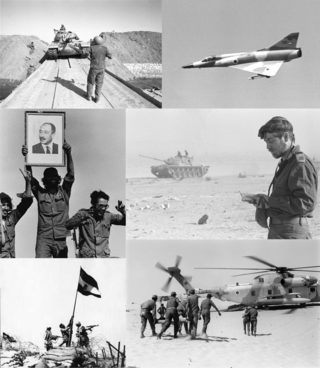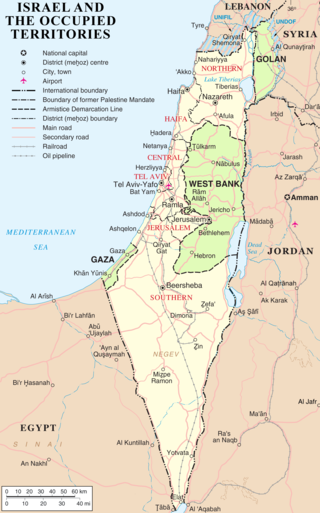Major banks
| Logo | Bank | Established |
|---|---|---|
| | Bank Hapoalim | 1921 |
| Bank Leumi | 1902 | |
 | Bank Mizrahi-Tefahot | 1923 |
| | First International Bank of Israel | 1972 |
 | Israel Discount Bank | 1935 |
The following is a list of banks in Israel:
| Logo | Bank | Established |
|---|---|---|
| Bank of Israel | 1954 |
| Logo | Bank | Established |
|---|---|---|
| | Bank Hapoalim | 1921 |
| Bank Leumi | 1902 | |
 | Bank Mizrahi-Tefahot | 1923 |
| | First International Bank of Israel | 1972 |
 | Israel Discount Bank | 1935 |
| Bank | Est. | Remarks |
|---|---|---|
| Arab Israel Bank | 1961 | Arab Israel Bank was wholly owned by Bank Leumi and was merged into Leumi in 2016 |
| Mercantile Discount Bank | 1971 | Mercantile Discount Bank is a subsidiary of Israel Discount Bank |
| Bank of Jerusalem | 1963 | |
| Bank Otsar Ha-Hayal | 1946 | Bank Otsar Ha-Hayal is a brand of First International Bank |
| Union Bank (Bank Igud) | 1951 | Acquired by Bank Mizrahi-Tefahot. |
| Bank Massad | 1929 | Bank Massad is a subsidiary of First International Bank (51%), jointly owned with Histadrut HaMorim (Israel's teachers Trade Union) |
| Bank Yahav | 1954 | Bank Yahav for Government Employers is a subsidiary of Bank Mizrahi-Tefahot (50%), jointly owned with Israel's government employers trade union and State of Israel |
| Dexia Israel Bank | 1953 | Acquired by Discount Bank; merged into Mercantile Bank brand. |
| Poaley Agudat Israel Bank | 1977 | Poaley Agudat Israel Bank is a brand of First International Bank, serving mainly the Jewish Orthodox community |
| U-Bank | 1934 | U-Bank is a brand of First International Bank, specializes in private banking |
| One Zero Digital Bank | 2019 | A digital-only bank with no branches |
| Logo | Bank | Est. | Remarks |
|---|---|---|---|
| Postal Bank (Bank Ha-Doar) | 1951 | Postal bank is a part of government-owned Israel Postal Company and supervised by the Ministry of Communications according to the postal service laws, like other postal services. |
| Logo | Bank | Branch opened in Israel |
|---|---|---|
| BNP Paribas Israel | 1996 | |
| Southeast Global Nà Ni Bank | 2019 | |
| | Citibank Israel | 1996/2000 |
| | HSBC Israel | 2001 |
 | State Bank of India | 2006 |
| Barclays Bank | 2011 | |
| UBS Israel |
| Name |
|---|
| Cal - Israel Credit Cards |
| Leumi Card |
| Isracard |
| Europay (Eurocard) Israel |
| Poalim Express |
| Diners Club Israel |

The Gaza Strip, or simply Gaza, is a polity and the smaller of the two Palestinian territories. On the eastern coast of the Mediterranean Sea, Gaza is bordered by Egypt on the southwest and Israel on the east and north.

Hamas, an acronym of its official name, Harakat al-Muqawama al-Islamiya, is a Palestinian Sunni Islamist political and military movement governing parts of the occupied Gaza Strip.

Hezbollah is a Lebanese Shia Islamist political party and militant group, led since 1992 by its Secretary-General Hassan Nasrallah. Hezbollah's paramilitary wing is the Jihad Council, and its political wing is the Loyalty to the Resistance Bloc party in the Lebanese Parliament.

Jerusalem is an ancient city in West Asia, on a plateau in the Judaean Mountains between the Mediterranean and the Dead Sea. It is one of the oldest cities in the world, and is considered holy to the three major Abrahamic religions—Judaism, Christianity, and Islam. Both the State of Israel and Palestine claim Jerusalem as their capital; Israel maintains its primary governmental institutions there, and Palestine ultimately foresees it as its seat of power. Neither claim, however, is widely recognized internationally.

The Palestinian National Authority, commonly known as the Palestinian Authority and officially the State of Palestine, is the Fatah-controlled government body that exercises partial civil control over West Bank areas "A" and "B" as a consequence of the 1993–1995 Oslo Accords. The Palestinian Authority controlled the Gaza Strip prior to the Palestinian elections of 2006 and the subsequent Gaza conflict between the Fatah and Hamas parties, when it lost control to Hamas; the PA continues to claim the Gaza Strip, although Hamas exercises de facto control. Since January 2013, the Palestinian Authority has used the name "State of Palestine" on official documents, although the United Nations continues to recognize the Palestinian Liberation Organization (PLO) as the "representative of the Palestinian people".

The Six-Day War or June War, also known as the 1967 Arab–Israeli War or Third Arab–Israeli War, was fought between Israel and a coalition of Arab states from 5 to 10 June 1967.

The West Bank, so called due to its relation to the Jordan River, is the larger of the two Palestinian territories. A landlocked territory near the coast of the Mediterranean Sea in the Levant region of West Asia, it is bordered by Jordan and the Dead Sea to the east and by Israel to the south, west, and north. The territory has been under Israeli occupation since 1967.

The Yom Kippur War, also known as the Ramadan War, the October War, the 1973 Arab–Israeli War, or the Fourth Arab–Israeli War, was an armed conflict fought from 6 to 25 October 1973, between Israel and a coalition of Arab states led by Egypt and Syria. The majority of combat between the two sides took place in the Sinai Peninsula and the Golan Heights—both of which had been occupied by Israel in 1967—with some fighting in African Egypt and northern Israel. Egypt's initial objective in the war was to seize a foothold on the eastern bank of the Suez Canal and subsequently leverage these gains to negotiate the return of the rest of the Israeli-occupied Sinai Peninsula.

Zionism is a nationalist movement that emerged in the 19th century to enable the establishment of a homeland for the Jewish people in Palestine, a region roughly corresponding to the Land of Israel in Jewish tradition. Following the establishment of the modern state of Israel, Zionism became an ideology that supports the development and protection of the State of Israel as a Jewish state.

The 1948 Arab–Israeli War, also known as the First Arab–Israeli War, followed the civil war in Mandatory Palestine as the second and final stage of the 1948 Palestine war. It formally began following the end of the British Mandate for Palestine at midnight on 14 May 1948; the Israeli Declaration of Independence had been issued earlier that day, and a military coalition of Arab states entered the territory of Mandatory Palestine in the morning of 15 May.

The Israel Defense Forces, alternatively referred to by the Hebrew-language acronym Tzahal (צה״ל), is the national military of the State of Israel. It consists of three service branches: the Israeli Ground Forces, the Israeli Air Force, and the Israeli Navy. It is the sole military wing of the Israeli security apparatus. The IDF is headed by the Chief of the General Staff, who is subordinate to the Israeli Defense Minister.

The Israeli–Palestinian conflict is an ongoing military and political conflict in the Levant. Beginning in the mid-20th century, it is one of the world's longest-continuing conflicts. Key areas of the conflict include the Israeli occupation of the West Bank and Gaza Strip, the status of Jerusalem, Israeli settlements, borders, security, water rights, Palestinian freedom of movement, and the Palestinian right of return.

Benjamin "Bibi" Netanyahu is an Israeli politician who has been serving as the prime minister of Israel since 2022, having previously held the office from 1996 to 1999 and again from 2009 to 2021. He is the chairman of the Likud party. Netanyahu is the longest-serving prime minister in the country's history, having served for a total of over 16 years. He is also the first prime minister to have been born in Israel after its establishment.

The Palestinian territories are the two regions of the former British Mandate for Palestine that have been occupied by Israel since the Six-Day War of 1967, namely the West Bank and the Gaza Strip. The International Court of Justice (ICJ) has referred to the West Bank, including East Jerusalem, as "the Occupied Palestinian Territory", and this term was used as the legal definition by the ICJ in its advisory opinion of July 2004. The term occupied Palestinian territory was used by the United Nations and other international organizations between October 1999 and December 2012 to refer to areas controlled by the Palestinian National Authority, but from 2012, when Palestine was admitted as one of its non-member observer states, the United Nations started using exclusively the name State of Palestine. The European Union (EU) also uses the term "occupied Palestinian territory". The government of Israel and its supporters use the label "disputed territories" instead.

Palestine, officially the State of Palestine, is a state in the Southern Levant region of West Asia. Founded on 15 November 1988 and officially governed by the Palestine Liberation Organization (PLO), it claims the West Bank and the Gaza Strip as its territory, all of which have been Israeli-occupied territories since the 1967 Six-Day War. The West Bank contains 165 Palestinian enclaves that are under partial Palestinian rule, but the remainder, including 200 Israeli settlements, is under full Israeli control. The Gaza Strip was governed by Egypt but conquered by Israel in 1967. Israel governed the region until it withdrew in 2005. The United Nations, the International Committee of the Red Cross, and various human-rights organizations still consider Gaza to be held under Israeli military occupation – due to what they regard as Israel's effective military control over the territory – as well as under blockade by Israel and Egypt. Israel disputes this. Hamas seized power after winning the 2006 Palestinian legislative election.

Israel has occupied the Palestinian territories and the Golan Heights since the Six-Day War of 1967. It previously occupied the Sinai Peninsula and southern Lebanon as well. Prior to Israel's victory in the Six-Day War, occupation of the Palestinian territories was split between Egypt and Jordan, with the former having occupied the Gaza Strip and the latter having annexed the West Bank; the Sinai Peninsula and the Golan Heights were under the sovereignty of Egypt and Syria, respectively. The first conjoined usage of the terms "occupied" and "territories" with regard to Israel was in United Nations Security Council Resolution 242, which was drafted in the aftermath of the Six-Day War and called for: "the establishment of a just and lasting peace in the Middle East" to be achieved by "the application of both the following principles: ... Withdrawal of Israeli armed forces from territories occupied in the recent conflict ... Termination of all claims or states of belligerency and respect for and acknowledgment of the sovereignty, territorial integrity and political independence of every State in the area and their right to live in peace within secure and recognized boundaries free from threats or acts of force."

The Arab–Israeli conflict is the phenomenon involving political tension, military conflicts, and other disputes between various Arab countries and Israel, which escalated during the 20th century. The roots of the Arab–Israeli conflict have been attributed to the support by Arab League member countries for the Palestinians, a fellow League member, in the ongoing Israeli–Palestinian conflict; this in turn has been attributed to the simultaneous rise of Zionism and Arab nationalism towards the end of the 19th century, though the two national movements had not clashed until the 1920s.
The Gaza–Israel conflict is a localized part of the Israeli–Palestinian conflict beginning in 1948, when 200,000 Palestinians fled or were expelled from their homes, settling in the Gaza Strip as refugees. Since then, Israel has fought 15 wars against the Gaza Strip. The number of Gazans killed in the most recent 2023 war — 27,000 — is higher than the death toll of all other wars of the Arab-Israeli conflict.

The Jews or Jewish people are an ethnoreligious group and nation originating from the Israelites of the ancient Near East, and whose traditional religion is Judaism. Jewish ethnicity, religion, and community are highly interrelated, as Judaism is an ethnic religion, although not all ethnic Jews practice it. Despite this, religious Jews regard individuals who have formally converted to Judaism as part of the community.

The Institute for Intelligence and Special Operations, popularly known as Mossad, is the national intelligence agency of the State of Israel. It is one of the main entities in the Israeli Intelligence Community, along with Aman and Shin Bet.